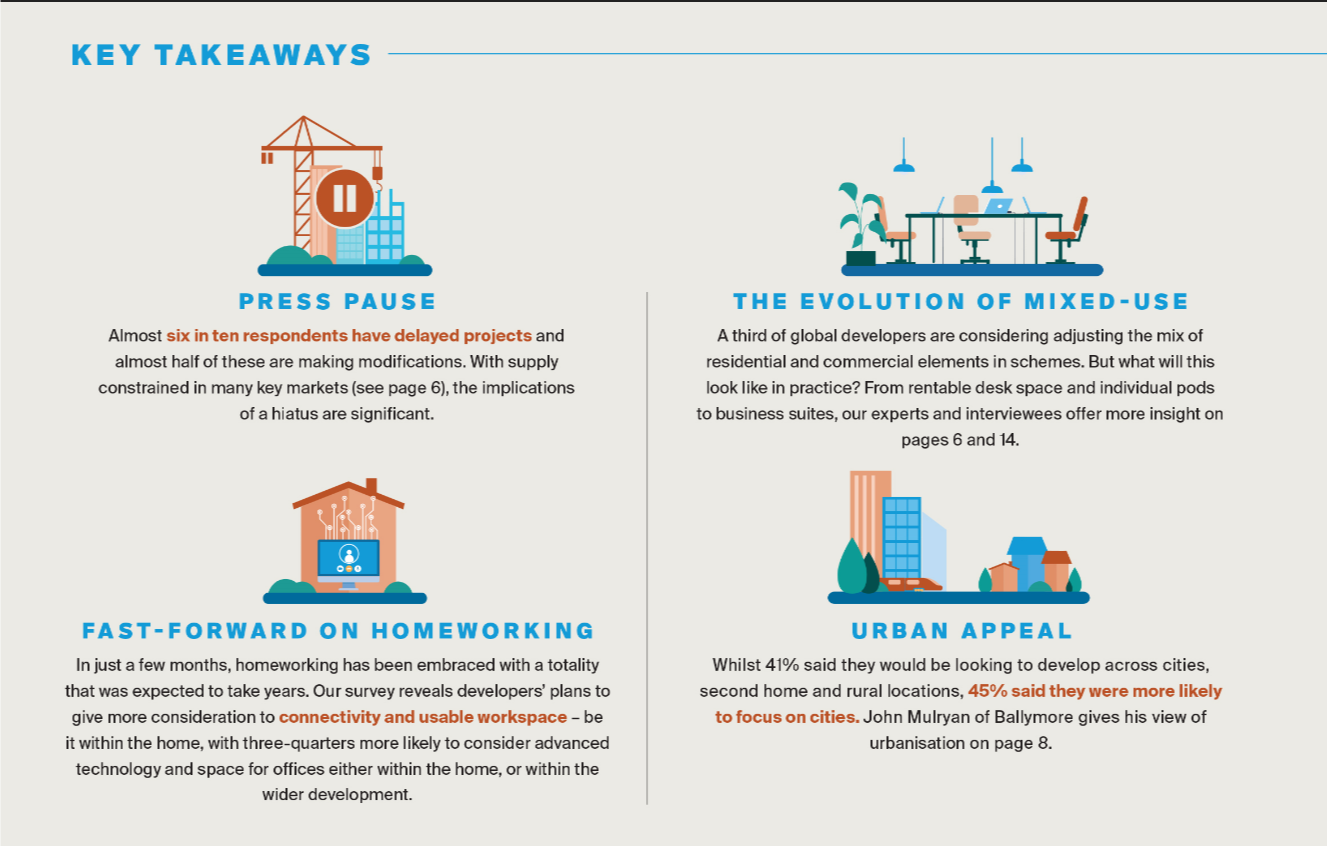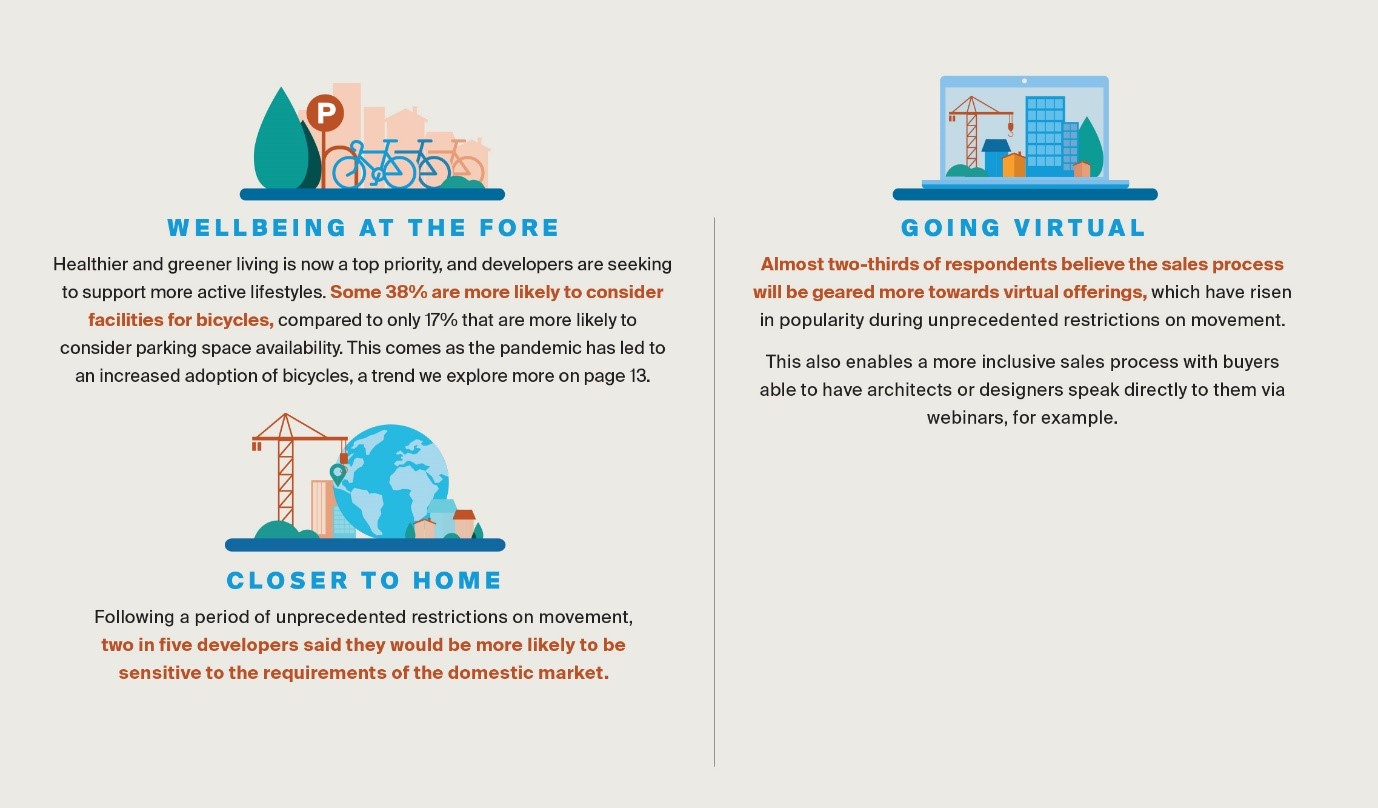The initial impact of the pandemic on global residential development
Responses from 160 global developers reveal the pandemic’s impact on near-term housing supply and long-term design trends
2 minutes to read
Almost six in ten global developers have delayed projects in response to the spread of Covid-19, as the virus wreaked havoc on supply chains and prompted a wholesale rethink of how and where people want to live.
That’s one of the findings of our survey of 160 developers across 22 locations – the first of its kind since the World Health Organization declared the outbreak a pandemic. While it is still too early to confirm the lasting impact of the pandemic on the development landscape, it is clear that it has accelerated pre-existing trends and prompted new ideas for current and future developments.
The overwhelming majority of respondents to our survey are active in global gateway cities, many of which already faced supply constraints and stretched affordability that could be compounded by a near-term drop in delivery.
A pause for reflection amid a crisis is to be expected, but the scale of the current hiatus is surprising and could prompt policymakers to consider incentives to spur development. Of those with delayed projects, more than four in ten are now making changes to designs that were once considered complete.
Yet what cuts through in both the survey and the interviews is the importance of not overreacting to the immediate fallout from the crisis. There is little guidance or evidence pointing to the need to design for future lockdowns or a specified meterage for social distancing.
More critically, the level of market activity seen globally through the crisis demonstrates the resilience of demand for housing designed and built prior to the pandemic. For example, according to Knight Frank data, the number of offers accepted across the UK capital in August was the highest ever monthly total on record.
While developers will likely temper their urge to radically reshape development designs initially, our survey confirms a desire to consider potential Covid-19 inspired changes. For example, many are considering including more advanced telecommunications and storage facilities for bicycles to accommodate a change in lifestyle, we explore these more on page 4 of the report. We also look at what technology may look like in future developments on page 12, Smart Fibre Infrastructure and facial recognition to air cleaning systems and robotics.
For the future two messages are clear. Covid-19 has accelerated trends already underway in development and ultimately confirmed that flexibility is key. We need truly versatile space that supports agile working, whilst allowing for a separation of home life to promote health and wellbeing, all of which have been brought into sharp focus by the events of the past eight months.
See the key takeaways below and click here for the full report

